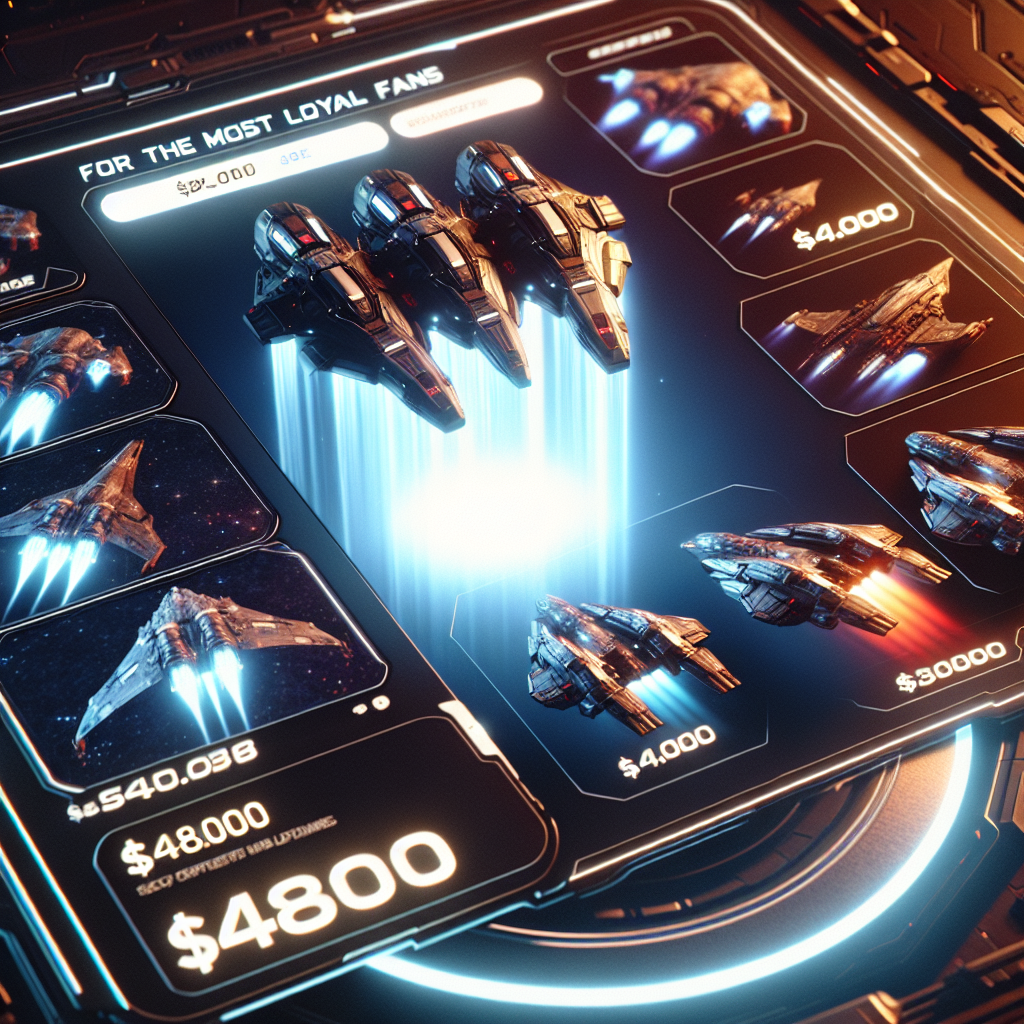Star Citizen’s Controversial Monetization Strategy
Star Citizen, a game that has become as well-known for its ambitious scope as for its unique funding model, has long been a topic of discussion in the gaming community. The game’s developer, Roberts Space Industries, has employed a controversial monetization strategy that involves selling virtual items to players before these items are even available in-game. This approach has been a part of Star Citizen’s development since its inception, with the sale of virtual ships and other space-themed assets generating significant revenue for the project, despite the game itself remaining in a perpetual state of development.
The Loyalty of Star Citizen’s Community
The community surrounding Star Citizen is a testament to the enduring allure of Chris Roberts’ vision for a sprawling, immersive space simulation. Despite the game’s protracted development and aggressive monetization tactics, a core group of devotees remains fiercely loyal. They not only support the game’s funding model but also actively defend it against criticism. This loyalty is a stark contrast to the detractors who often ridicule the extent to which fans invest in virtual items.
- Community Support: Fans of Star Citizen are known for their unwavering commitment to the game, often citing the unique and ambitious nature of the project as justification for their continued financial support.
- Defending Monetization: Many in the community defend the game’s monetization as a necessary means to achieve the high level of detail and expansive content promised by the developers.
- Development Advocacy: Supporters argue that the lengthy development time is reflective of the game’s complexity and the developers’ dedication to quality.
- Detractors’ Criticism: Critics of Star Citizen point to the seemingly endless development cycle and the sale of expensive virtual items as evidence of mismanagement or a lack of tangible progress.
- Mockery of Spending: There is a vocal segment of the gaming community that mocks the idea of spending large sums of money on virtual assets, especially when full implementation in the game is not yet realized.
The dichotomy between the supporters and critics of Star Citizen’s funding model is a reflection of the broader debate on the value and ethics of monetization in modern gaming. While some see it as a necessary evolution of the industry, others view it as a slippery slope towards prioritizing revenue over player experience.
The Legatus Bundle
The Legatus Bundle is perhaps the most striking example of Star Citizen’s bold monetization strategy. Priced at an eye-watering $48,000, the bundle includes every ship currently available in the game, amounting to over 175 vessels from various notable manufacturers. This comprehensive collection is designed to offer fleet commanders the ultimate arsenal for carving out their legacy in the Star Citizen universe. The bundle’s description promises empowerment for those aiming to lead humanity towards a brighter future, and it even includes the Karna “Ascension” Rifle, which is set to be available in-game in Q1 2024. Learn more about in-game assets.
| Year | Price |
| 2018 | $27,000 |
| 2024 | $48,000 |
The escalation in price over the years reflects the growing ambition and scale of the game, as well as the increasing number of ships and assets being added to the Star Citizen universe. The Legatus Bundle is not just a purchase; it’s a statement of supreme commitment to the game’s ongoing development and a testament to the belief in its eventual completion.
High-Priced Virtual Items and Exclusivity in Star Citizen
The existence of the Legatus Bundle and its staggering price point raises questions about the implications of such high-priced virtual items in the gaming industry. It’s a clear indicator of the exclusivity that comes with being a top-tier supporter of Star Citizen, as the bundle is only available to members of the Chairman’s Club, an elite group of players who have already spent over $1,000 on the game. This level of investment creates a distinct divide within the player base, between those who can afford such luxuries and the self-described ‘space peasants’ who cannot or choose not to spend as much.
The reaction on the Star Citizen subreddit to the Legatus Bundle has been one of amusement, with the community often engaging in self-deprecating humor about the vast sums of money being spent. The term ‘space peasants’ has become a self-applied badge of honor among the game’s lower-paying customers, highlighting the dichotomy within the community.
Ultimately, the Legatus Bundle is a reflection of the unique economic ecosystem that has developed around Star Citizen. It’s a world where the lines between gaming and investment blur, and where the value of virtual items can rival that of real-world commodities. For fans and critics alike, it’s a phenomenon that continues to provoke discussion and debate about the future of monetization in video games.

